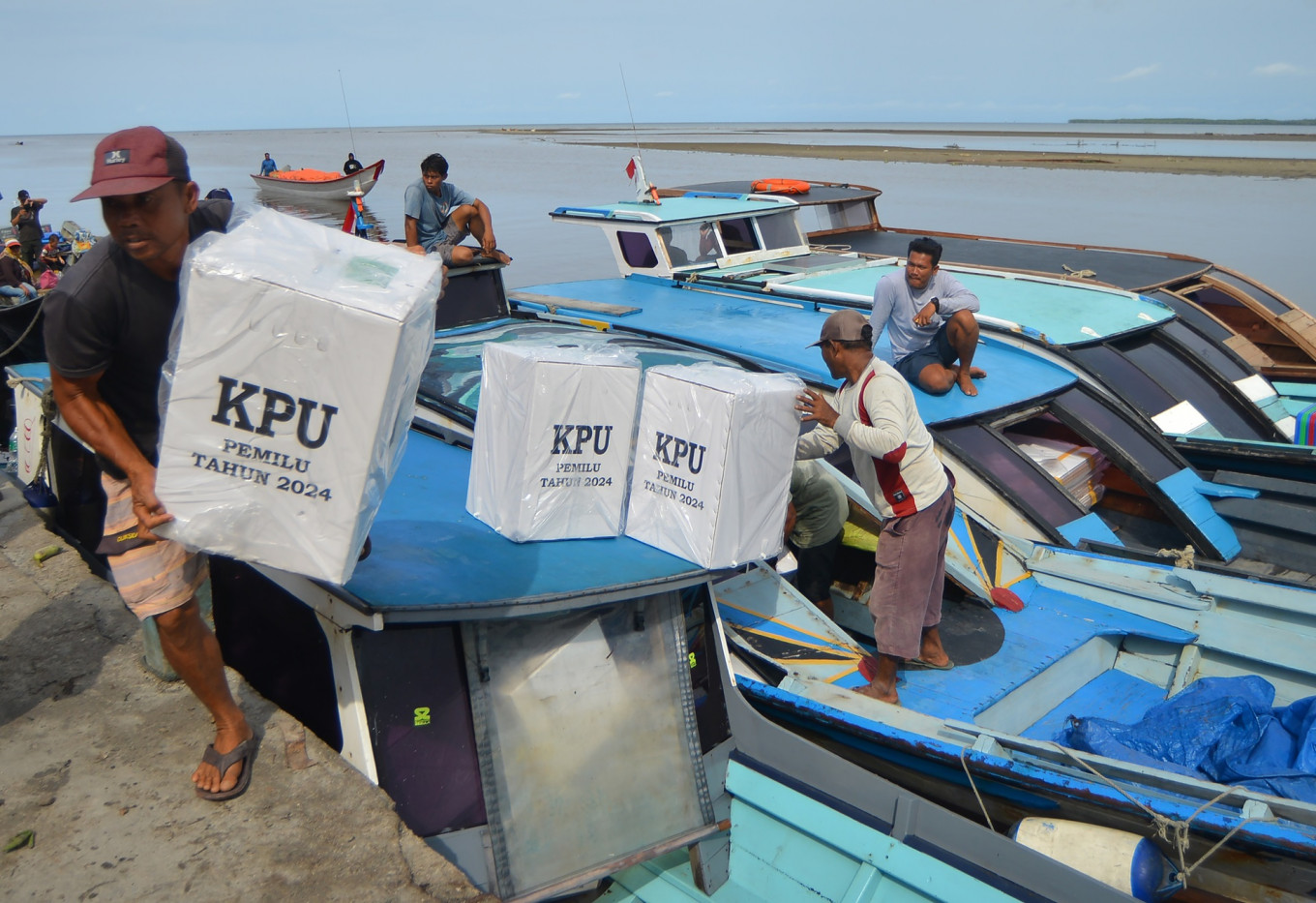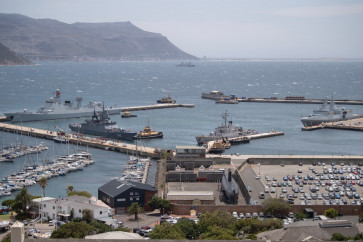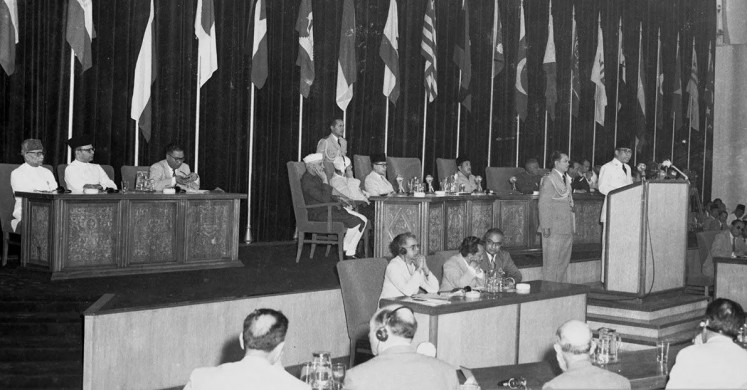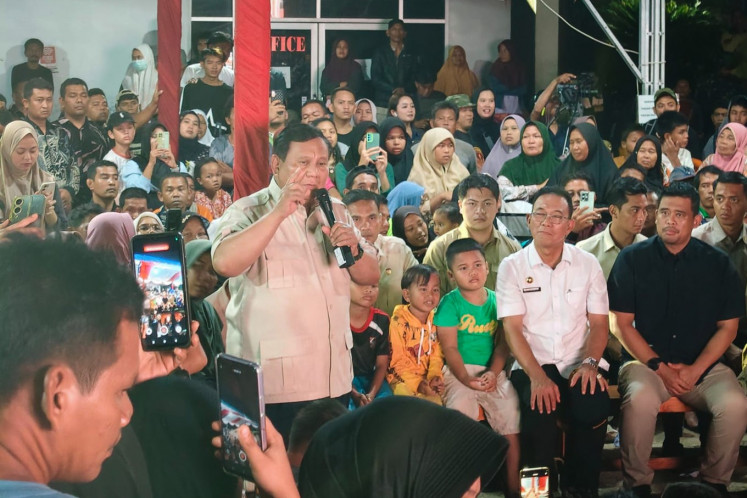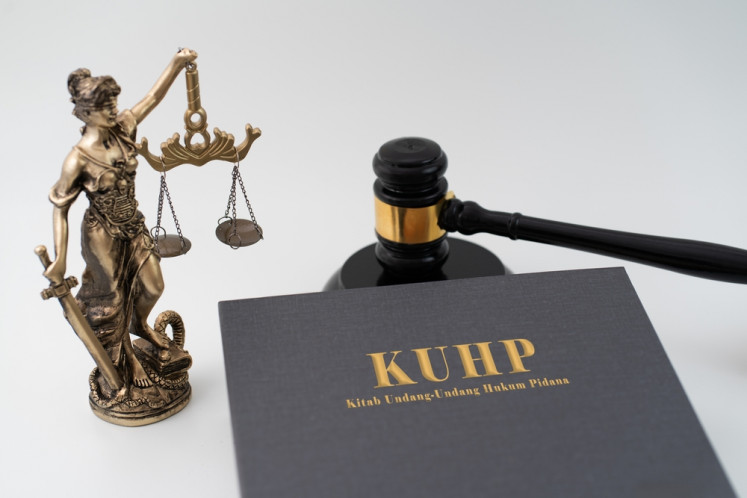Popular Reads
Top Results
Can't find what you're looking for?
View all search resultsPopular Reads
Top Results
Can't find what you're looking for?
View all search resultsCelebrating Indonesia's 'fiesta of democracy'
As many countries hold elections this year, the simultaneous presidential and legislative elections in Indonesia, the third-largest democracy, holds special significance for ensuring ever more democracy for people at home and around the world.
Change text size
Gift Premium Articles
to Anyone

With Indonesia heading to the polls to elect a new president and members of legislatures, it gives me special delight as the ambassador of India, the largest democracy in the world, to congratulate the people and government of Indonesia on this momentous occasion.
Over the last 25 years, Indonesia has proven to its people and the world the innate value of the democratic system in terms of peaceful transfer of power and inclusive politics.
Democracy in Indonesia is a source of regional and global stability and a force for peace in the world. Democracy at home lends greater credibility and acceptance to the call for reform of the international system and the demand for peace.
Indeed, 2024 is a special year for democracies: It is the biggest election year in the world’s history. Elections to choose governments are taking place in many democratic countries this year by an electorate of more than half the world’s population.
Credible elections provide a mandate to governments because in democracies, the power resides with the people: They are the sole arbiters of the destiny of a nation.
Countries around the world, and very prominently Indonesia and India, have convincingly proven that for pluralistic and diverse societies, the democratic pathway is the only real road to inclusive and sustainable development.

We all have watched with great fascination the Indonesian election campaign for this round of the presidential election. In the course of the campaign, different candidates have articulated their policies and mutual differences with considerable honor and respect. The presidential and vice presidential debates have been a master class on public communication and civil debate, itself the hallmark of mature democracies and even more impressive in young democracies such as Indonesia.
Remarkably, though not at all surprisingly, the youth have been active participants in the process. They have used their adroitness with social media as well as many other creative means of communication to great impact. This is a manifestation of Indonesia harvesting the benefits of its demographic dividend, as the youth are aware that the politics of the day will play a major part in deciding their future.
Through interacting with the Indonesian youth as well as ordinary people, one easily discerns a great deal of knowledge about the electoral processes as well as the candidates. The Indonesian electorate is well-informed. They are keen to express their choice. This has been the invisible yet tangible gain of years of democratization of the country.
Freedom of speech, free media and freedom of religion are deeply cherished rights of individuals and societies. Sometimes a tendency is discerned in some quarters to diminish the importance of elections as not being a critical democratic attribute, while ascribing greater value to other characteristics.
However, the cardinal truth is that only with credible elections and peaceful transfer of power can the rights of the individual and the collective be guaranteed in pluralistic democracies. It is the single most or perhaps the most important determinant as well as the contribution of democracy.
Organizing credible elections on such a scale is an extraordinary feat. I congratulate the efforts of the General Elections Commission (KPU) for the gigantic efforts it has made in both voter education and organizing the elections in an archipelagic country where logistics is a huge challenge. The Indonesian elections are undoubtedly the most complex of elections held anywhere in the world.
It is not commonly known that Indonesian elections are held on a single day, involving an electorate of around 204 million voters who will elect more than 20,000 national and regional representatives. Voters are spread over thousands of islands in the world’s largest archipelago. Every one of them needs to be provided a reasonable opportunity to vote at the more than 800,000 polling stations established across the country.
The same goes for the Indonesian diaspora, which also has the opportunity to vote at their embassies abroad. This is an exceptional feat that most countries would struggle to emulate.
Yet this is not all. Indonesia, with a voter turnout of more than 80 percent recorded in 2019, has a level of democratic participation that is the envy of even the more established democracies of the world.
Indonesia is the world’s third-largest democracy and along with India and the United States, represents the aspirations of almost 2 billion people living under a democratic framework. These three countries prove that democracy does not hold any special affinity with any race or religion and that it is enthusiastically adopted by all.
India is majority Hindu, the US is majority Christian, whereas Indonesia has a Muslim majority. Yet the passion for adherence to democratic values and practices is shared by all. A democratic polity protects the rights of minorities and women.
In both Indonesia and India, we have witnessed the inexorable empowerment of women. Today, Indonesia has 30 percent of seats in legislatures reserved for women, and India enacted the 106th Constitution Amendment Act in September 2023 to reserve 33 percent of seats in legislatures for women.
Democracy is not only a political framework to bring people together, but also a suitable mechanism to deliver development to the people who live in pluralistic societies. No system is perfect, and perhaps achieving perfection is beyond the human realm. However, as current systems go, there is widespread recognition that democratic polities and regulated free market economies bring the maximum material and nonmaterial welfare to their people.
Democracies engender enterprise and innovation and encourage the free human spirit to take wing and soar. It is no wonder that the most exciting global start-up ecosystems prevail in the democracies of the world, just as the world’s most renowned artists, craftpersons, designers, sports persons or entrepreneurs are democracy’s gifts to the world.
Immanuel Kant’s Democratic Peace Theory postulates that to attain peace, states must first be democratic. Values enshrined in the liberal democratic framework ensure the promotion of peace and that democratic states do not go to war with each other.
The world, which saw a relatively peaceful international system in the post-Cold War era, is now under great geopolitical strain. The way forward, however, lays not in retreat from democratic principles but in yet more democracy for people at home and across the international system. That is why democracy and elections in Indonesia are so important for the world.
The pesta demokrasi (fiesta of democracy) is a cause for celebration not only for Indonesia, but also for democracy and forces for peace all over the globe. India’s 1.4 billion people, who will also be celebrating elections soon, rejoice and take great pride in this Indonesian festival.
***
The writer is the Indian ambassador to Indonesia.

